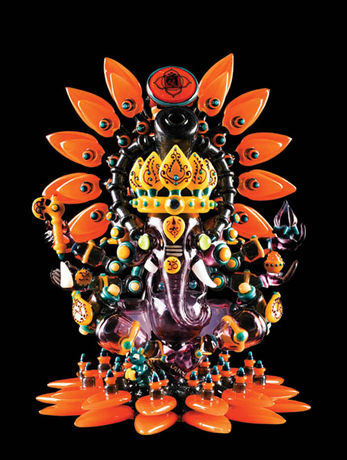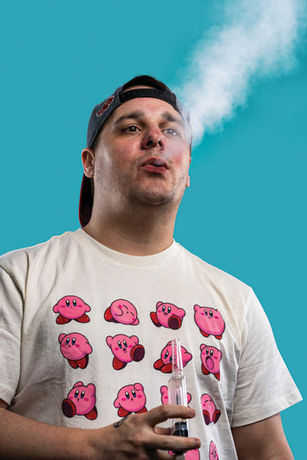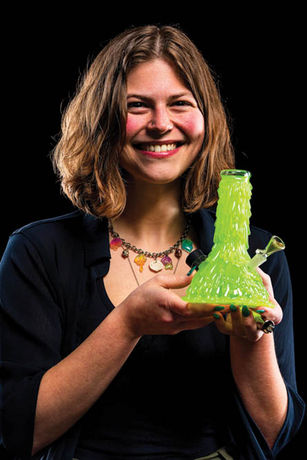For millennia, indigenous healers known as medicine men or shamans have utilized psychoactive plants to treat ailments and cultivate a deeper understanding of the universes both inside us and around us. In recent years, a movement has been building to rediscover the therapeutic potential of these ancient plant medicines, led in part by modern-day medicine men like Eddie Funxta.
A 42-year-old Cannabis cultivator and cactus collector, Funxta has tripped out hundreds of times on everything from psilocybin, peyote, and ayahuasca, to MDMA, LSD, and DMT. He’s authored numerous articles on psychedelics and helped lead the 2016 effort to legalize mushrooms in California. He’s studied under legendary Cannabis activists like Jack Herer, Ed Rosenthal, and Rick Simpson, as well as renowned Sonoran toad expert Dr. Gerry Sandoval Isaac. More importantly, though, he’s helped thousands of patients with Cannabis oil and mushrooms – making him one of the most experienced alternative healers in Southern California. But whatever you do, don’t call him a shaman.
“I don’t consider myself a shaman – I prefer to call myself a neo-medicine man,” Funxta clarifies. “Shamans do some hard, heavy work – they can draw deep demons out of people. I’m not comfortable doing that … I’m still fighting those demons myself.”
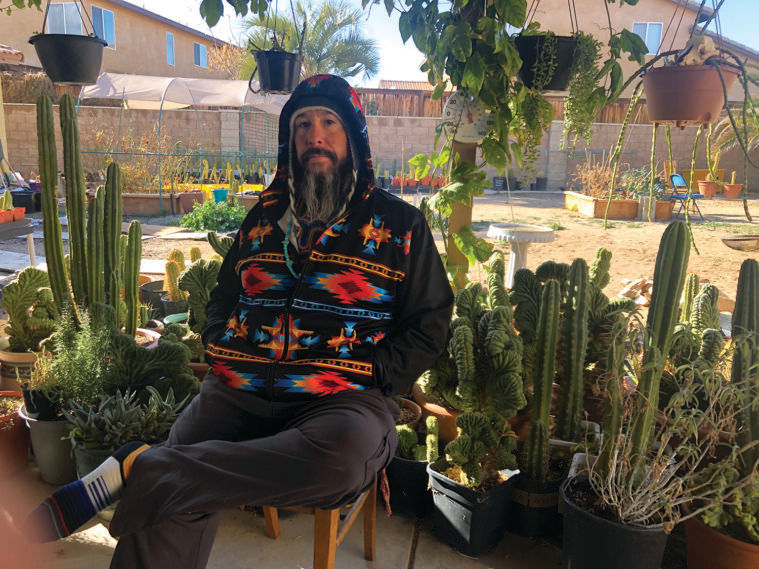
Personal Demons
For Eddie, those personal demons arose from a difficult childhood. Growing up in the projects of East LA, he was denied knowledge of his Native American/Mexican heritage by his family over fears they would be ostracized. When he was seven, his parents divorced and he lost touch with his father’s Yavapai side, leaving him to be raised by his mother’s “hardcore Catholic” side of the family. Living in the projects, disconnected from his Native heritage, under an intense Christian dogma that he rejected, he was in his words, “very bad kid.” But Eddie’s angry trajectory started shifting at age 15, thanks to the influence of a history teacher who assigned his class a research project on a controversial topic of their choosing.
“Everybody was picking Hitler and other crazy shit,” he recalls. “Since I grew up listening to psychedelic rock like The Doors and Jimi Hendrix, I picked magic mushrooms and shamanism.”
Eddie headed to the library, looked up psychedelics and found three books: Aldous Huxley’s “Doors of Perception,” an installment of Carlos Castaneda’s “Don Juan” series, and a cultural book about Mesoamerica that recounted tales of ancient shamanic mushroom ceremonies.
“The stuff I was reading was amazing to my young mind,” he says. “I was blown away – I felt like a curtain had been pulled back on my reality.”
A week after his class presentation, his friend Johnny showed up at school with a sheet of acid. Eddie and his friends threw a party, tripped out for the first time and had a life-changing night filled with “dancing, laughter, colors, compassion and connection.”
A Whole New World
In the following months, Funxta immersed himself in the new world that had opened to him – tripping on acid or mushrooms two to three times a month and even selling them at school. After dropping out in 1996, he began growing weed and selling it to celebrities and dispensaries around Hollywood. It was at one such dispensary that he met a woman named Sister Somalia, who first opened his eyes to marijuana’s medicinal value – instigating Eddie’s transformation from a thuggish drug dealer to a compassionate caregiver. Funxta began visiting homes, hospitals, hospices, and clinics, offering Cannabis to cancer and AIDS patients, as well as addicts trying to kick methadone, meth, and heroin. Before long, he realized that many patients were unable or unwilling to smoke joints, and recognized a huge gap in the medical market.
“We had flowers, dabs, topicals … but Phoenix Tears – or Rick Simpson Oil as most people know it – wasn’t being produced on an adequate scale in SoCal.”
So in 2010, he set out to fill that need. Through mutual friends, he connected with Rick Simpson himself, learned how to properly produce the potent full-plant oil, and began distributing large quantities of it under the name Native Healing Oil.
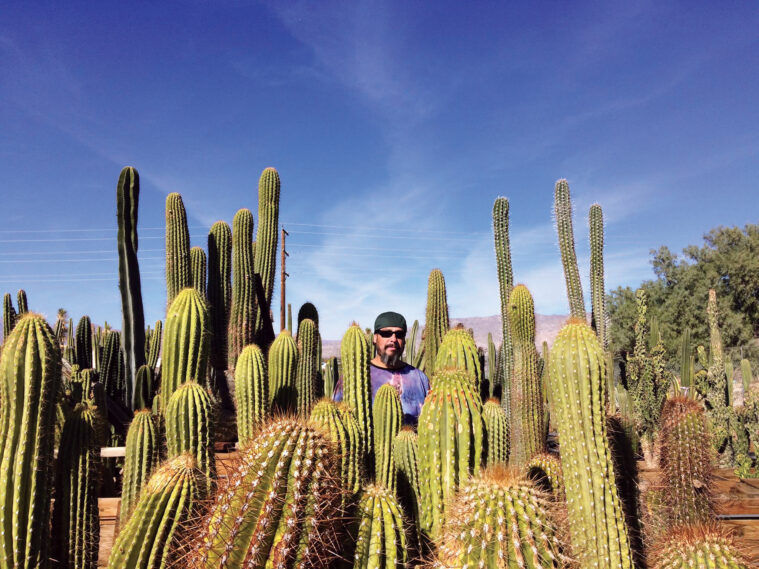
“I know Rick Simpson was upset with people calling it RSO,” Funxta explains. “I’m not Rick Simpson, so it’s not RSO – it’s NHO.”
While his NHO was effective in treating many patients’ physical ailments, Funxta knew that emotional/psychological wounds required a deeper kind of medicine. He recalls one particular patient that he helped transition from physical to mental healing: A 57-year-old former beauty queen who’d used NHO while battling breast cancer, but was left with scars inside as well as out.
“She’d had a double mastectomy, lost her hair and teeth … she didn’t recognize herself in the mirror anymore.” Suffering from depression and panic attacks, she asked Eddie for help and he recommended mushrooms. Though initially resistant, she eventually gave it a try.
“The very first dose I gave her shook her out of her depression instantaneously,” he remembers proudly. “She called me the next day with a completely different outlook, saying she felt great. She ended up starting a breast cancer support group and becoming an advocate for plant medicines.”
Microdosing Fungi
Fungi aren’t just capable of altering one’s state of consciousness – they can actually alter the brain’s structure itself by rebuilding cognitive connections. The late activist icon Jack Herer (whose family Eddie has worked with) medicated with mushrooms after suffering a debilitating stroke in 2000.
“Jack was microdosing a gram or two of Amanita muscaria a day,” he says. “Within six to eight months, he’d regained his speech.”
Of all the substances he’s taken, Funxta says his most healing trip came from a combination of ayahuasca and yopo – a powder made from the dried seeds of a South American tree that’s traditionally blown up into one’s nostrils. Taken together, these two substances produce a prolonged, profound shamanic experience.
“For 12 hours I was in the deepest, heaviest psychedelic space I’d ever been in,” he recounts. “I was carried away by the spirit world, I died and was reborn, and gained a deep understanding and peace with myself and the universe.”
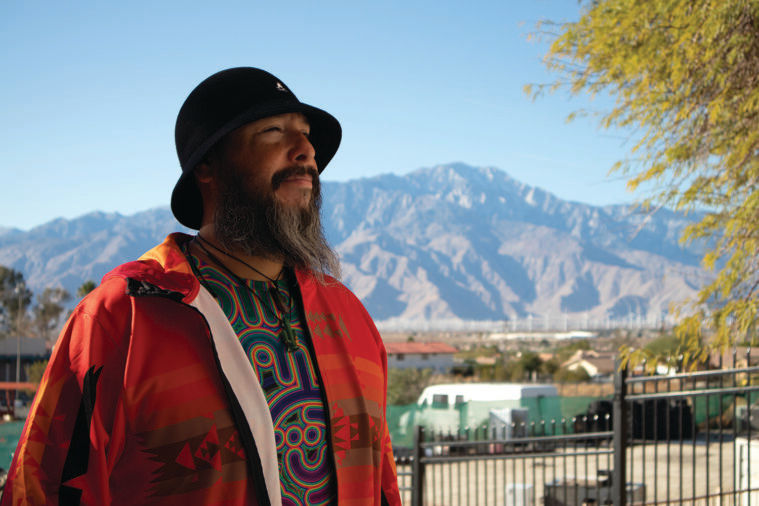
Over the past decade, Funxta has used Cannabis and other entheogens to assist over 2,600 sick and dying patients to recover or transition. In 2019, his career of compassion drew the attention of filmmaker Jeremy Norrie, who featured Eddie and several of his patients in the film “About Cannabis and Cancer” – one in a trilogy of medical marijuana documentaries produced for Amazon Prime. Another film about psychedelics is already in the works.
“The last American witchhunt is plants,” he testifies. “Cannabis, mushrooms, holy cactus … any plant that alters your state of consciousness has been made illegal or portrayed as detrimental to society, when in reality they are what first brought people together to create societies and build civilizations.”
Unfortunately, due to a bitter divorce that placed him in potential legal jeopardy, Funxta was forced to abandon his NHO brand indefinitely as of 2017. Nevertheless, after spending some time backpacking through Yosemite (hiking, vision questing and dancing under the stars), he’s rededicated himself to his spiritual mission – only this time, without the drugs.
“I’m creating a natural healing space in the California desert … sound bath and singing bowl ceremonies, yoga, meditation – but zero illegal plant medicines,” he explains. “You don’t always need a hit of acid – you can find that healing space without it … it’s already inside you.”


